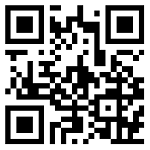提醒:点这里加小编微信(领取免费资料、获取最新资讯、解决考教师一切疑问!)
[误] Do you like to go with us?
[正] Would you like to go with us?
[析] Do you like…问的是习惯,如:Do you like swimming? 而would you like是一次性的邀请。
[误] I am used to get up early in the morning.
[正] I am used to getting up early in the morning.
[析] used to 共有三种用法,① 表示过去的习惯,如:I used to live with my parents. ② 表示过去的习惯延续到现在,如:I am used to swimming in the river. ③ 用于被动语态,如: Oil is used to cook
[误] To play with the children are very interesting.
[正] To play with the children is very interesting.
[析] 不定式作主语时,应视为单数主语,特别是两个不定式用and作连词作主语时,如指的是一件事也应用单数谓语动词。如:To get up early and to go to sleep early is good for your health.
[误] He asked me do my homework alone.
[正] He asked me to do my homework alone.
[析] 某些动词要求不定式作其宾语或宾语补足语,它们是:ask somebody to do something 要求某人做某事。 tell somebody to do something 告诉某人做某事 还有prepare 准备, decide 决定, happen to 碰巧, seem 似乎。
[误] he told me to drive a car.
[正] He told me how to drive a car.
[析] 要学会疑问词加不定式的用法,特别要注意的是what是疑问代词,而how是疑问副词。如:I want to know what to do. (我想知道干什么)。 I want to know how to do it. (我想知道如何去作)。 要注意的是how to do it 中的it是不可少的,因how是疑问副词,不能作及物动词的宾语,而what是疑问代词,可做do的宾语,所以what to do 后不要加it。
[误] I am very glad meeting you.
[正] I am very glad to meet you.
[析] 许多形容词后加不定式,这样用时形容词多是用来描述人物的感情、态度,如:glad, happy, pleased, lucky, sorry, sad, upset, ready, careful, surprised。
[误] I'm too glad for seeing you.
[正] I'm too glad to see you.
[析] 这句话不能按照too…to的句型翻译为:我太高兴了以至于不想见你。而应译为:见到你太高兴了。又如:She is too honest to tell the truth 应译为:她很诚实,不会不讲实话。
提醒:点这里加小编微信(领取免费资料、获取最新资讯、解决考教师一切疑问!)









